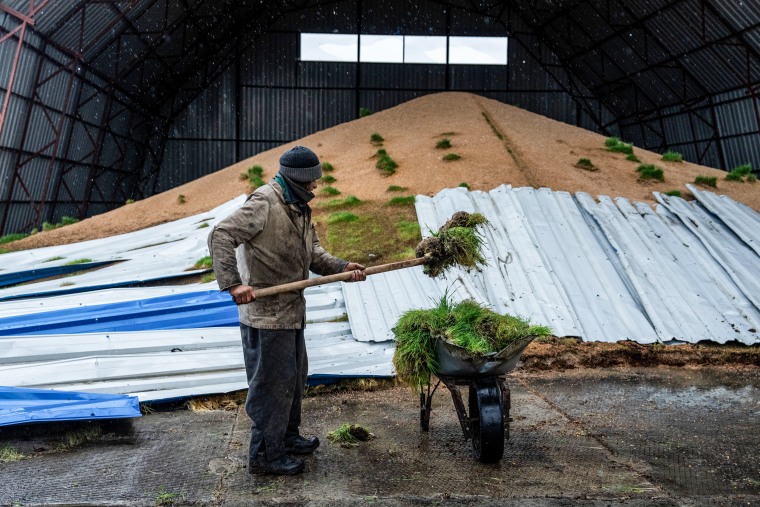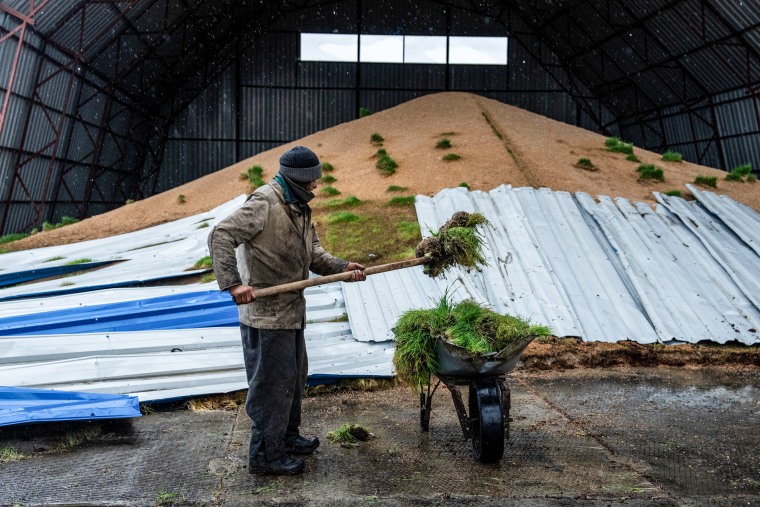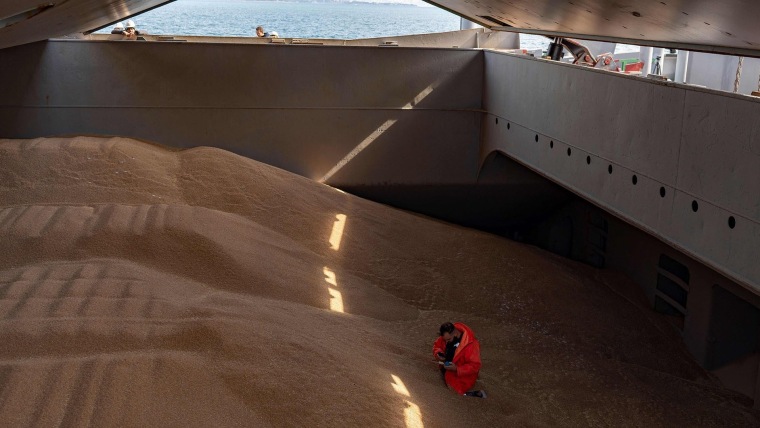Ukrainian President Volodymyr Zelenskyy accused Russia of creating “conditions of artificial famine” and suggested it should be expelled from the G-20 group of nations on Saturday after Moscow withdrew from a crucial grain export deal.
“How can Russia be among the G-20 if it is deliberately working for starvation on several continents?” Zelenskyy said during an address on Ukrainian television.
“This is nonsense,” he said before suggesting that Russia should have “no place” in the Group of 20 nations, which comprises the world’s largest economies and works to address such issues as sustainable development, the global economy and climate change.
He also said that Russia was “doing everything to ensure that millions of Africans, millions of residents of the Middle East and South Asia find themselves in conditions of artificial famine or at least a severe price crisis.”
His comments came after the Kremlin said Saturday that it was going to pull out of the U.N.-brokered grain export agreement to allow safe passage for ships carrying grain in and out of the city of Odesa and two other Ukrainian ports.

Russia’s Foreign Ministry said Ukraine’s military targeted its naval ships near the port city of Sevastopol on the Russian-annexed Crimean Peninsula on Saturday.
Accusing British navy “specialists” of helping to coordinate what it called a “terrorist” attack, it said the attack had been carried out with 16 drones.
The Ukrainian government has denied it was behind the attack and Britain’s Defense Ministry has not responded to NBC News’ requests for comment.
Russia faced international condemnation over the decision. President Joe Biden warned that global hunger could increase because of Russia’s decision to suspend the deal.
“It’s really outrageous,” said Biden, speaking in Wilmington, Delaware, on Saturday, as reported by The Associated Press. “There’s no merit to what they’re doing. The U.N. negotiated that deal and that should be the end of it.”
Secretary of State Antony Blinken also accused Russia of weaponizing food. “Any act by Russia to disrupt these critical grain exports is essentially a statement that people and families around the world should pay more for food or go hungry,” he said in a statement Saturday.
Elsewhere, the European Union‘s foreign affairs chief, Josep Borrell Fontelles, wrote on Twitter that Moscow’s move could affect the delivery of much needed grain, while Britain’s foreign secretary, James Cleverly, said on Twitter that Russia should allow the exports to “reach the world’s hungry.”
Russia’s ambassador to Washington, Anatoly Antonov, scolded the U.S. on Sunday for making what he said were false assertions about Moscow’s decision to suspend its participation.
“Washington’s reaction to the terrorist attack on the port of Sevastopol is truly outrageous,” Antonov said on Telegram. “We have not seen any signs of condemnation of the reckless actions by the Kyiv regime.”
Russia’s announcement came one day after Antonio Guterres, the United Nations secretary-general, urged Moscow and Ukraine to renew the export deal, which was scheduled to expire on Nov. 19.
Guterres said Friday that the deal — brokered by the U.N. and Turkey — had helped “to cushion the suffering that this global cost-of-living crisis is inflicting on billions of people.”
After Russia’s announcement, Guterres’ spokesperson, Stephane Dujarric, said it was “vital that all parties refrain from any action that would imperil” the initiative.
Ukraine is one of the world’s biggest agricultural producers and exporters and plays a critical role in supplying grains to the global market.
In May, the U.N. World Food Programme said some 47 million people were at risk of “acute hunger,” as Russia’s invasion of Ukraine in February halted grain shipments, with the steepest rises predicted in sub-Saharan Africa.
The grain deal had restarted shipments from Ukraine, allowing sales on world markets, targeting the prewar level of 5 million metric tons exported from Ukraine each month.
More than 9 million tons of corn, wheat, sunflower products, barley, rapeseed and soya have been exported since the deal was made.
Moscow’s departure from the grain deal marks a new development in a war that has recently been dominated by Russian retreats in the face of a Ukrainian counteroffensive that has recaptured large areas of territory from Moscow’s forces in the east of the country.





